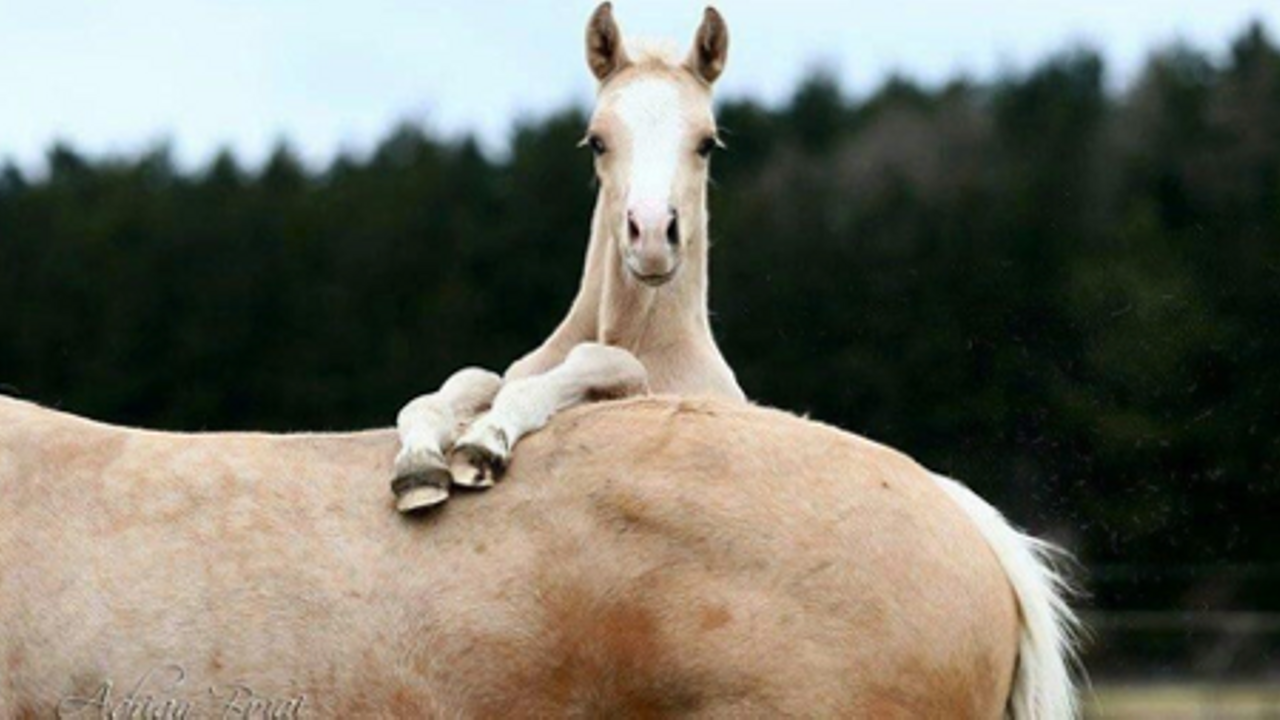Ending Weaning Trauma

Years ago I developed a way to wean foals that did not create trauma. I used the approach for over twenty years. During that time, I learned that horses that grew up being weaned in this manner were smarter and had a deeper sense of well-being created by the trust they had in human beings. I feel one of the biggest opportunities we have to build trust with horses can be accomplished at weaning.
There were two reasons that I did not want a foal to experience trauma. The first being my understanding of the suffering that they go through. Ripping a foal from its mother as a way to wean is torture. I also felt that by avoiding the trauma I would create a super horse that could connect with humans. What I discovered was that less training was needed, and horses that were weaned without trauma were amazing partners as family pets and as performance horses. They excelled to the best of their ability.
I began the process of weaning at around three months, or when the foal was interested in eating along with his mother. Inside their 50 by 80-foot paddock, I set up a corral that was about 12 by 16 feet. There was a bar across the gate that the foal could go under, but it restricted the mom from entering. That way, the foal got to practice separation on his or her terms and the mother could call the foal out if she needed to.

At the afternoon feeding time, I put the foal’s food down in his corral and waited for the foal to enter. Then I put the mother’s food down on the other side, close to her foal. When they were both focused on their rations, I closed the gate so the foal could not get out. When the foal discovered that he or she was locked in and wanted out, I would open the gait. This act built trust in the foal. Instead of taking him from his mom, I was returning him.
I increased the time before opening the gate when the foal asked to be let out. This built tolerance in the foal to accept being away from mom, without trauma. When the foal could wait for 20 minutes with no concern, after he had finished his food, it was time to move on to the next step. I would feed mom and lead her foal to the next paddock where the foal’s food was waiting. I would return the foal to mom as soon as the foal was finished. In some cases, I would return the foal even before he was finished so he would look forward to returning. The foal was now around four months old.
By six to eight months, they were no longer worried about being separated and they no longer looked for one another. The foal became interested in exploring life without mom. Mom and offspring no longer experienced anxiety being separated for any length of time. The foal lost interest in nursing and the mother dried up.
Weaning foals in this manner, along with shaping the character of the foal with the Waterhole Rituals, turns out a horse that is quite different than a foal that has experienced trauma. The foals that were weaned in this manner naturally enjoyed human company and training. Leading on a rope is quite natural to them, and they shy less or not at all. They are more willing, secure, and optimistic. They get into trailers easily without the need for training. They accept saddles easily, and less bomb proofing is needed. Being ridden was natural to them. Of course, some took a bit more care, still, they took less care than horses that had experienced weaning trauma.
Note- I think it is very important not to keep a mom and foal together for too long as they will develop a dependence on one another. If left together too long, it takes someone experienced to remove this dependency without causing trauma. Many decisions need to be made on the spot; what to allow and what not to allow. For adult offspring or two horses that experience separation anxiety, I use the same system that I do for weaning a foal, along with the Waterhole Rituals. I get the same good results…no trauma experienced.
I know the damages of trauma, first hand, from dealing with my own trauma of separation. Trauma is like a scar on the body. It is always there to remind you. Trauma affects your first reaction to others. With time, it can be repaired through good relationships that heal.
What I wish for every horse lover is that they could experience a horse that was raised without the trauma of separation. I wish for horses, that their relationship with humans offers them a better life and that trusting them would be natural.
Be on the lookout for new horse and human sightings and may the horse be with you.
Warmly,
Carolyn
P.S - Sign up for a FREE Strategy Session with us and let us help you:
- Build Confidence, Connection, and Trust
- Develop Strong Leadership Skills
- Have a Relaxed and Connected Riding Horse
- Develop a deeper bond with your horse
- Liberty Dance with your horse
We will spend time helping you develop a fresh mindset and a tried and true strategy to develop the horse of your dreams. What are you waiting for?
